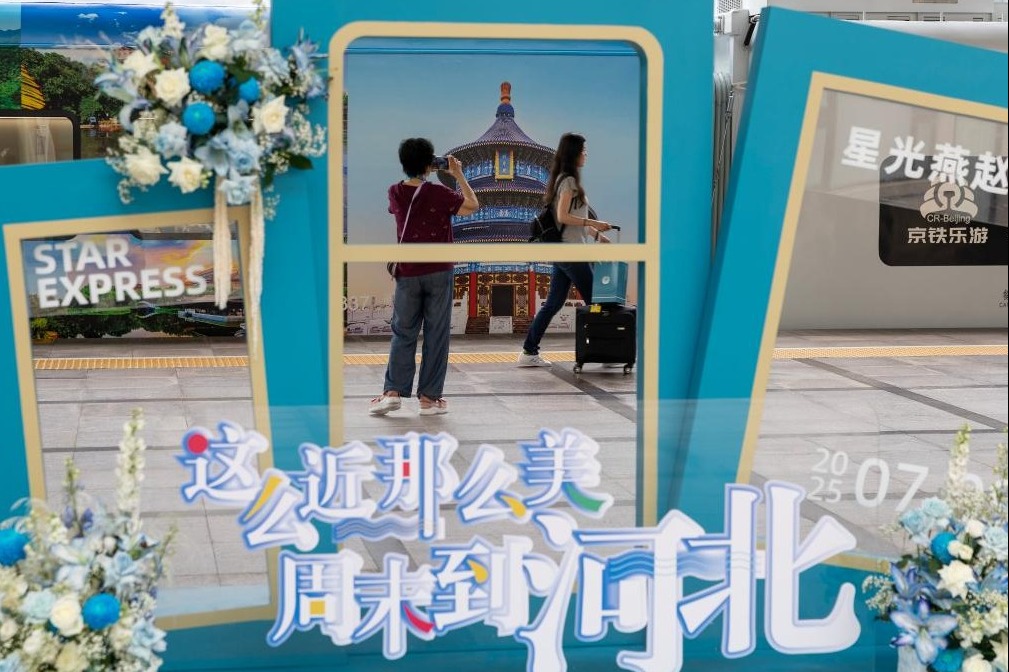Macao has a few lessons for success it can offer HK


The former Portuguese colony of Macao celebrated on Dec 20 the 20th anniversary of its return to China. Separated by only 60 kilometers of sea from Hong Kong, the two special administrative regions are not developing along parallel lines economically or politically despite their proximity. Their current differences can partly be explained by their different colonial heritage. When the Portuguese left Macao in 1999 after 442 years of colonial rule, they left a region with a very rich cultural heritage and an enclave whose economy centered on gambling. Hong Kong, on the other hand, was focused on leveraging its geopolitical sweet spot, allowing it to transform itself into a lucrative gateway to China. The British colonial administration also bequeathed Hong Kong a good education system, allowing the nurturing of an educated elite capable of building a world-class banking and financial-services system in support of its equally successful logistics industry and its earlier manufacturing industries, before they moved en masse to the Chinese mainland.
In other words, the two SARs treaded different economic paths, with Macao attempting to diversify into other industries and Hong Kong struggling to adjust its economic base, which resulted in an unacceptable wealth gap and unaffordable housing for most of its residents.
In the eyes of Beijing, though, Macao was the better of its two SAR children, considering its strict abidance to the “one country, two systems” formula, whereas some Hong Kong residents have been challenging this principle.
In contrast to Hong Kong, Macao’s 700,000 inhabitants showed little interest in emulating some of their Hong Kong counterparts in agitating over the latter half of the “one country, two systems” governance formula. Most of them are content with their increased earnings, improved infrastructure and substantially expanded job and educational opportunities. Beijing’s approbation of Macao was unmistakably laid bare, with President Xi Jinping lavishly praising it during the anniversary banquet.
To Macao’s credit, none of its citizens has shown any inclination to challenge the status quo. When Ho Iat-seng was sworn in by Xi as the new chief executive of Macao, he vowed that his government will continue to fully and accurately implement “one country, two systems” by strictly following the PRC Constitution and Macao’s Basic Law and safeguarding national sovereignty.
Macao will try to diversify its economy by creating a new stock exchange and embracing both the Belt and Road Initiative and the Guangdong-Hong Kong-Macao Greater Bay Area project. Now basically a one-industry city, Macao understands its vulnerability. The economic viability of gambling as an industry is unsustainable because it is dependent on the prosperity of other Asian economies, especially the Chinese mainland.
Macao’s eagerness to diversify its economy and to embrace the “one country, two systems” formula should be seen as a wake-up call for Hong Kong
Falling revenues from gaming and tourism amid slowing growth on the mainland have prompted Macao to propose a stock market to diversify its economy and lessen its dependence on gambling. Macao would like to create a Nasdaq-like market denominated in yuan, facilitating fundraising by technology companies from the Bay Area economic hub.
While some experts in Hong Kong have said that Macao does not need a stock exchange, other business analysts say that in order to succeed, Macao will need to unmistakably differentiate its market from Hong Kong’s and Shenzhen’s, perhaps by focusing on investors from Portuguese-speaking countries.
Regardless, this new potential Macao stock exchange could be seen as a challenge to Hong Kong’s pre-eminent position in stimulating the Bay Area’s development. It had brought together the two SARs plus nine municipalities in the Guangdong province, with a combined population of over 69 million people and a GDP of around $1.5 trillion (comparable to that of the Tokyo Bay Area and the New York Metropolitan Area). It’s been labeled by some media as “China’s plan to beat Silicon Valley”. Hong Kong was supposed to contribute its sophisticated financial services, manpower and talent to this grand project, while Macao was supposed to contribute its experience in gambling and culture, and leverage its connections with the Portuguese- and Spanish-speaking worlds.
To sum up, should Macao’s latest attempts to diversify its economy be seen as a way to slowly replace Hong Kong? I don’t think so, since Hong Kong’s position as one of the world’s most important international financial centers showed no signs of eroding despite the street violence and social disruptions. Hong Kong will also remain “the gateway to China” although this particular role may be under stress a bit with China’s continued opening-up and new financial technologies and practices being introduced into the marketplace.
That said, Macao’s eagerness to diversify its economy and to embrace the “one country, two systems” formula should be seen as a wake-up call for Hong Kong. While Hong Kong may not lose its pre-eminent status overnight, 2047 is inexorably approaching, and many things could happen in the remaining 27 1/2 years. After 2047, Hong Kong can either retain its status as an SAR for perhaps another 50 years, or it could be absorbed by China and become a second-tier city whose inhabitants will line up to get a job in the (by-then) much more prosperous Shenzhen.
Macao has a lot to learn from Hong Kong as a world city, but Hong Kong should learn a few things from Macao as well. Hong Kong could show Macao how to become an international financial center and also not to depend on a narrow economic base (just four pillar industries in Hong Kong’s case), while Macao could show Hong Kong that minimizing friction with the central government will bring more benefits and stability to all. Hong Kong is in recession now, which should help it realize that its treasured role as a “gateway to China” may not be irreplaceable.

































